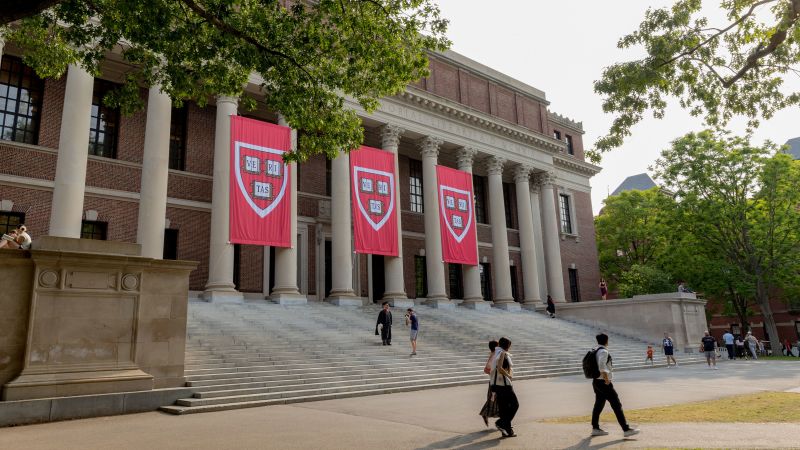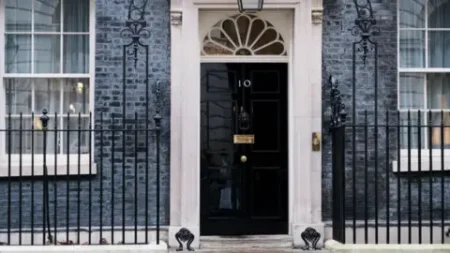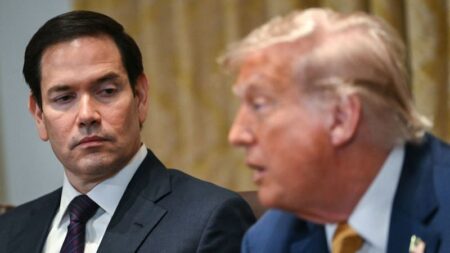Harvard University is poised to attend a significant court hearing on Monday regarding a contentious battle over funding initiated against the Trump administration. This legal confrontation is centered on Harvard’s quest to reclaim over $2 billion in federal research funding that was inexplicably frozen by the White House during the spring. This case represents more than just financial contention; it has evolved into a focal point of a broader confrontation involving academic freedom, federal financial aid, and governance within educational institutions—a situation that the Trump administration appears to harness as a politically advantageous issue.
During this critical hearing, U.S. District Judge Allison Burroughs is set to hear arguments from both Harvard’s legal representatives and attorneys from the Department of Justice. Harvard is seeking a judicial declaration to label the funding freeze as unlawful. The implications are significant, with potential repercussions touching on how the federal government interacts and oversees elite academic institutions. There appears to be a growing belief within the White House that positioning the administration against major universities can translate into political gains for President Donald Trump.
In its legal complaint, Harvard has contended that the funding freeze threatens pivotal research initiatives in medicine, science, and technology. The university alleges that what is unfolding is a “pressure campaign” from the government, aiming to bring the institution under governmental control regarding its academic endeavors. Harvard asserts that this move not only violates the First Amendment but also contravenes Title VI of the Civil Rights Act. Moreover, the university has emphasized that the freeze appears to be not only unreasonable but also lacking in coherent justification.
Simultaneously, the Trump administration is justifying its actions by asserting that Harvard has inadequately addressed allegations of antisemitism on campus, especially in light of the violent attacks by Hamas against Israel on October 7, 2023. The administration maintains that it is acting within its legitimate authority and claims a policy stance that refuses funding to institutions that fail to address antisemitism effectively. The administration’s spokesperson, Harrison Fields, articulated this ethos by stating that it is evident for the administration not to fund educational institutions neglecting to uphold civil liberties broadly.
For its part, Harvard insists that it is taking meaningful actions against antisemitism. These steps include revising policies regarding campus protests, enhancing its disciplinary procedures, and broadening educational efforts on antisemitism. The university leadership has indicated a willingness to work collaboratively with the government, as seen from reports about recent changes to websites related to minority and LGBTQ student services.
What emerges from this case, however, is a complex web of negotiations and communications that have unfolded. The Trump administration previously reached out to Harvard under the leadership of President Alan Garber with demands for governance reforms, hiring practices to reflect meritocracy, and a reevaluation of diversity programs running counter to their ideological vision, among other requests. This culminated in the suspension of $2.4 billion allocated for Harvard, impacting well over 950 ongoing research endeavors.
Despite efforts to arrive at a consensus, negotiations seem to falter. Although there were initial signs of potential settlement back in June, this momentum quickly dissipated as the administration intensified its assessments, branding the university’s conduct a serious breach of civil rights, thereby warning of further financial repercussions should compliance fail.
As the court date approaches, Harvard’s leadership has requested an expedited decision from Judge Burroughs, with a timeline stipulating that conclusive outcomes must occur no later than September 3, 2025. This deadline is critical as it aligns with the university’s obligations concerning grant funding. With ongoing tensions between one of America’s foremost educational institutions and a polarizing political administration, the outcome of this case is poised to have lasting implications not only for Harvard but for the landscape of academic funding and governance nationwide.










